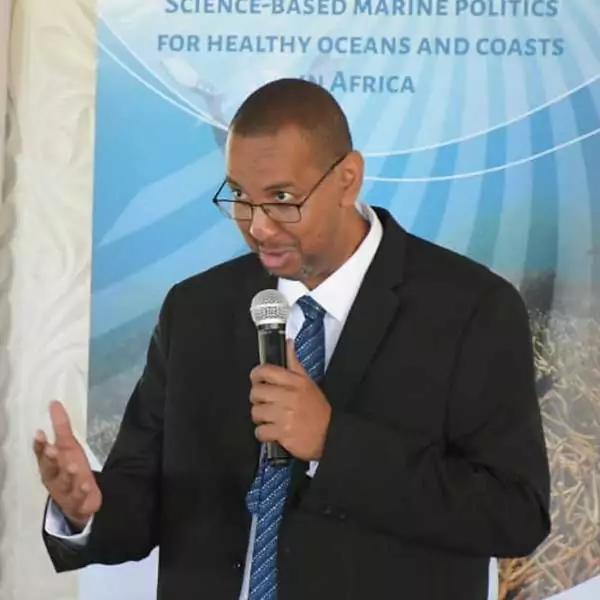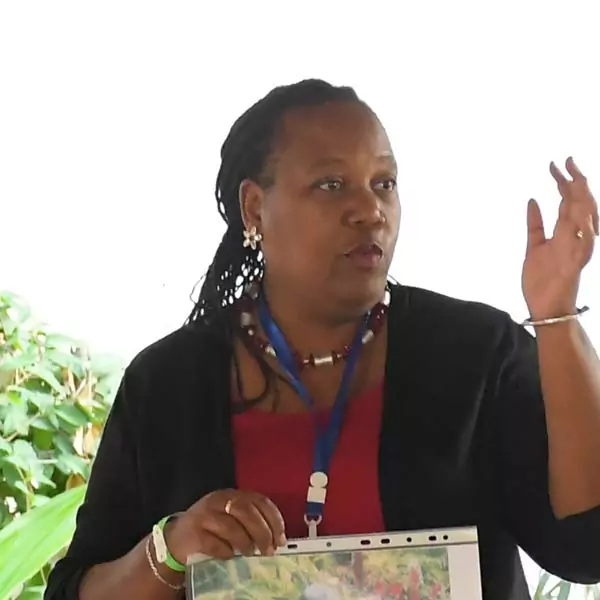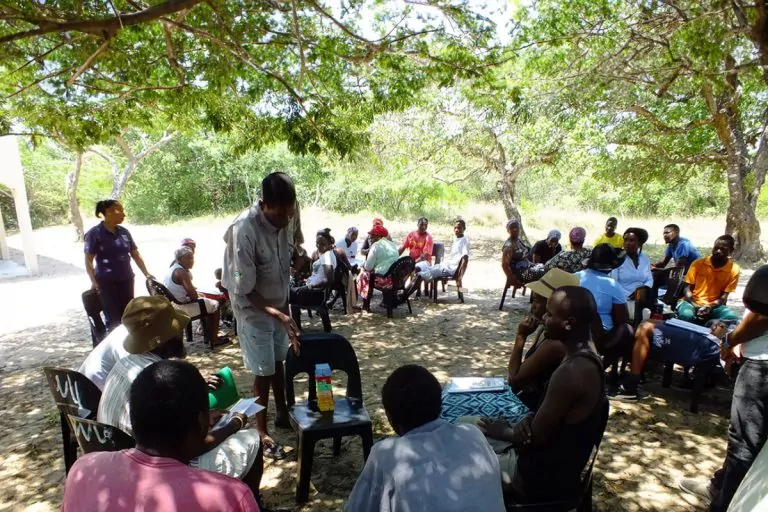Feature
Bridging the Science Policy Gap
Evidence-based policymaking in the blue economies of the WIO region
Monday, 25th July, 2022 – Dr. Aboud Jumbe is taking a short break between meetings while on the President of Zanzibar’s tour of the regions to inspect the implementation of the IMF Post COVID19 Blue Economy Recovery Fund projects for Zanzibar. Despite his busy schedule as the Principal Secretary in the Ministry of Blue Economy and Fisheries in Zanzibar, he is never tired of talking about the importance of evidence-based policymaking in ocean governance. This may not be surprising given his background as a trained environmental scientist from a small island state, yet it is not a given for a researcher to leave careful, concentrated fieldwork and solitary article-writing behind to enter the fast-paced world of policymaking.
A scientist as policymaker – if you can’t beat them, join them
For Jumbe, returning from his research activities at Bangalore University to his native Zanzibar was a wake-up call, “coming back and seeing the scale and the gravity and the magnitude of the emerging lifestyle that was literally ripping off the elements of nature and environment.” Yet he did not give up on his homeland. “They have this saying – if you can’t beat them, join them.”
The UN Ocean Decade is shining the spotlight on the need for evidence-based policy to protect the world’s ocean. The sharpened focus is bringing more and more policymakers onboard, and scientists have an unprecedented opportunity to get their research noticed by decision-makers. This has been recognised by marine scientists and science managers and is steadily being integrated into academic exchange.
A scientist as policy adviser – making science visible
Dr. Jacqueline Uku, an expert in seagrass ecology and physiology, now the Research Coordinator of the Kenya Marine and Fisheries Research Institute (KMFRI) and President of the Western Indian Ocean Marine Science Association (WIOMSA) , has been working on science policy transfer for many years. She shares Jumbe’s conviction that the time is right to bring the science policy uptake in the Western Indian Ocean (WIO) region to the next level. “We have a blue revolution that requires us to reinvent what we know and make it visible, and then look towards what we don’t know to bring that into the picture.” As global initiatives such as the UN Ocean Decade are increasing the interest of policymakers in research output, governments have become a new target audience for scientists, creating a need for researchers who understand the language of policy.
The gap between science and policy
The worlds of science and policy do not come together by default. Evidence-based policy requires solid long-term trend data, which takes years or even decades to produce. In politics, time is of the essence when making momentous decisions in the face of stakeholder pressures, social responsibility, party politics and periodic elections. Many research projects only receive funding for a specific one-time aim, which hamper the production of the necessary trend data. Further, even when scientific results have enormous potential for marine policy, they are most often written up for fellow researchers to pore over. Scientific results are found in scientific journals and not in formats that are digestible for policymakers. This conundrum in the status quo of science and policy calls for innovation, new ways of communicating and collaborating, and sharing expertise across boundaries of professions and nations.
The Policy Cycle: Theory vs. Reality
The changing role of researchers
Evidence-based Policy in Action
Save Our Mangroves Now! (SOMN) is a joint initiative founded by the German Federal Ministry for Economic Cooperation and Development (BMZ), the Worldwide Fund for Nature (WWF) and the International Union for Conservation of Nature (IUCN) and joined by Wetlands International in its current second phase (2020 – 2022). It aims at improving the protection of mangroves and their habitats around the world and with a specific focus on the WIO region. The initiative pioneered a global study detailing the legal and institutional frameworks governing mangroves and proposes solutions to address the gaps and weaknesses identified. The study revealed that in many cases adequate legislation already exists but is not implemented due to a lack of resources, coordination and capacity.
Together with mangrove experts around the world, from policy advisers to practitioners, SOMN has developed nine Mangrove Principles as guidance for national policymakers responsible for sustainable mangrove ecosystem management. One principle is to use a credible knowledge base for science-based arguments and capacity-building. These guiding principles form the roots of conservation efforts by the mangrove community around the world. The initiative further hosted four workshops with stakeholders in Tanzania, Kenya, Mozambique and Madagascar to build understanding of legal frameworks and challenges for mangrove conservation. This work represents the first concerted effort to address mangrove conservation in the WIO region from a legal perspective. The outcomes of these workshops and the global study take the form of recommendations for policy making and institutional processes.
One of the directly applicable outputs to bridge the science-policy gap was research into the blue carbon stored by mangroves in Lamu towards anchoring it into Kenya’s National Climate Change Action Plan and Kenya’s revised Nationally Determined Contributions (NDCs). SOMN further developed guidance on mangrove indicators in the Post-2020 Global Biodiversity Framework. This data provides scientifically robust data and resources for consideration by countries in national monitoring and reporting and identifies opportunities to effectively capture the contribution of mangroves in the monitoring of progress towards achievement of the 2050 vision for biodiversity.
Balancing Conservation and Innovation
Championing a sustainable Blue Economy in the WIO Region
Sustainable Blue Economy incorporates both ocean conservation and marine economic activities. The coastal and marine ecosystems of the WIO are critical for food security, employment, and economic development in 10 countries in eastern and southern Africa. Over 60 million people rely directly on this biodiversity hotspot, which is under threat from increased global demand for natural resources, pollution, climate change and a diversity of unsustainable economic activities. The Western Indian Ocean Governance Initiative (WIOGI) , funded by BMZ and implemented by Deutsche Gesellschaft für Internationale Zusammenarbeit (GIZ), forms a partnership with the Nairobi Convention as a legal framework and coordinating mechanism for regional marine protection in the WIO region.
As a founding member of the public-private-civil society alliance Our Blue Future, WIOGI wants to pave the way towards a sustainable Blue Economy in the region and support companies and communities to transition to more sustainable practices at scale. Our Blue Future strengthens the participation of private sector and communities as engines of the Blue Economy. The alliance fosters impact-oriented partnerships as well as concrete projects, continuously championing a sustainable Blue Economy in the WIO region.
The Science to Policy Platform (SPP)
The Nairobi Convention facilitates collaborations through the Science to Policy Platform (SPP), which was inaugurated in 2018 and was co-created with WIOMSA. The SPP is held every two years prior to the meeting of the Contracting Parties of the Nairobi Convention. Scientists are called upon to submit papers, which they then present to an audience of government representatives. The exchange allows scientists to share their findings from scientific enquiry and make recommendations that focus on a particular environmental or fisheries issue, with the aim of providing solutions and recommendations that policymakers can immediately bring into action.
The forum provided by the SPP advances the work of scientists and policymakers towards effective and productive science policy transfer. The collaborations often result in further interrogation at the level of the national governments in the region, and also support for critical initiatives for evidence-based planning and sustainable development. According to Jumbe, it has proved to be vital for developing innovative solutions for ocean governance, and particularly on Blue Economy, using strong data and effective methods of knowledge uptake. Uku also emphasises the importance of the SPP, explaining that the joint efforts of scientists and policymakers in the platform’s exchanges contributed to further research on marine litter and plastics after the ban of plastic bags in Kenya in 2017.
Mutual responsibilities for a common purpose
Scientists must learn to speak the language of policy, to gauge what policymakers need and what scientists can offer. “When you tell a member of parliament about ocean acidification, they will most probably get lost,” says Jumbe. “But when you tell them that, look, climate change is causing the loss of coral reefs and therefore exacerbating depletion of the fish stock harvested by local communities, resulting in serious and irreversible socio-economic impacts – that can make someone say, oh, so that is the result of ocean acidification.” Policymakers in turn have a responsibility in providing research funding beyond singular projects: “Often our work only tells part of the story,” says Uku. “We may be supported for one expedition. So, you go out to monitor change with ten water samples. We need to dig deeper and begin to look at historical trends over a longer period of time using multiple samples and monitoring points.”
Future challenges for science to policy uptake
By now, science policy uptake in the WIO region is built upon solid groundwork. Governments require well-packaged and communicated data, tailored to the input needed for evidence-based policymaking, and policymakers are becoming more and more attuned to the value of scientists who bring their results to the governance table. But scientists cannot just rely on decision makers to come to them. If research is to be used as the evidence base of policy, they must package research data in a form that policymakers can understand and use. Science policy transfer is most effective when it happens from the ground up. If communities continue to hold their governments accountable, collective action can prompt scientists to speak up, governments to listen, and come together to create ocean change.
Dr. Aboud Jumbe

“Scientists and policymakers have to agree of different goals, attitudes towards information, languages, perception of time and career paths. It is more like a symbiotic relationship.”
Principal Secretary at the Ministry of Blue Economy and Fisheries in Zanzibar
Dr. Jacqueline Uku

“We need to design science to produce policy outputs. We have designed science to generate knowledge. But we are not designing science to speak to policy-makers.”
President of the Western Indian Ocean Marine Science Association (WIOMSA) and senior scientist and principal research coordinator at the Kenya Marine and Fisheries Research Institute

